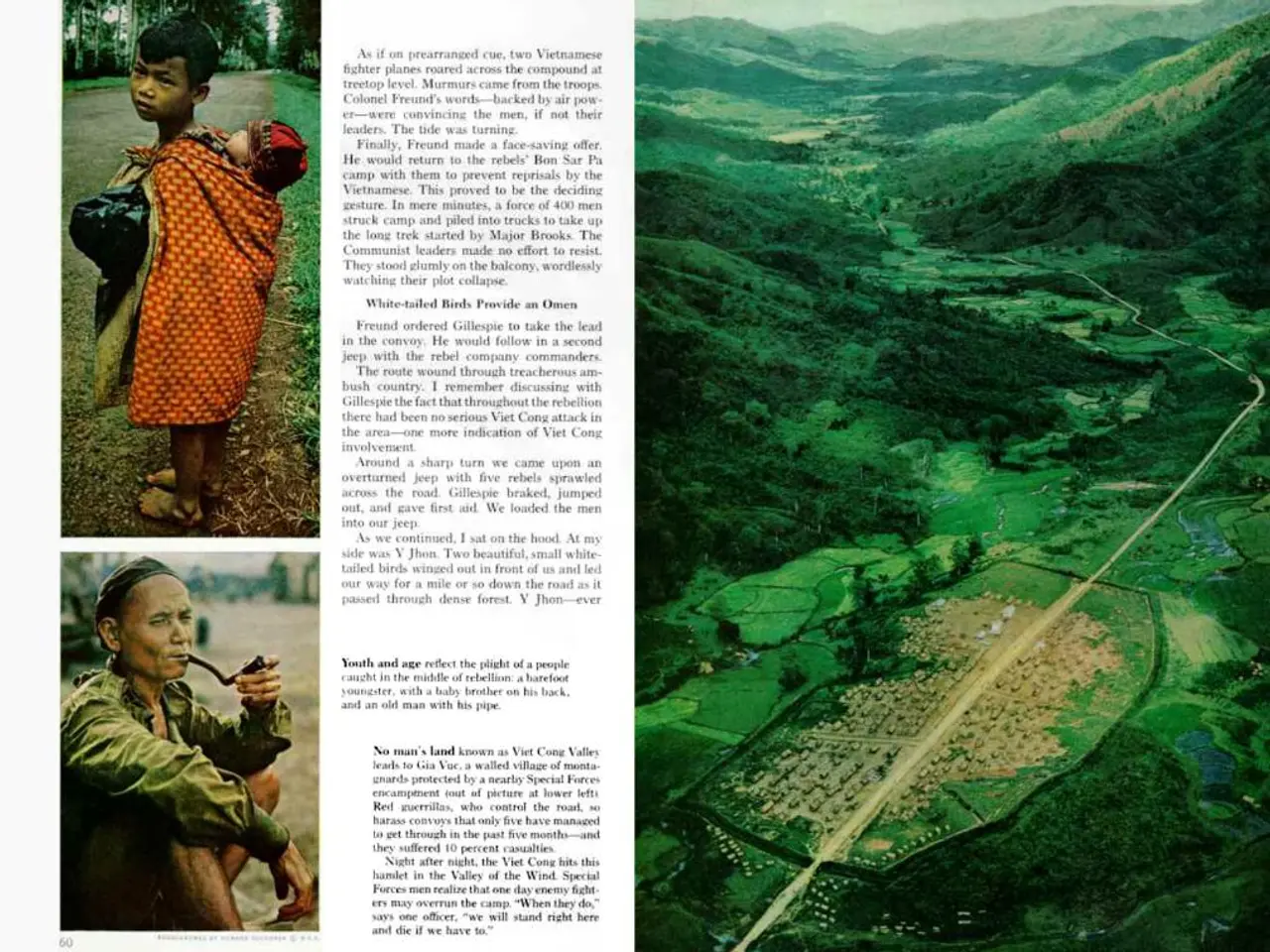Over 200 Palestinians in Gaza succumb to starvation and malnourishment
Crisis in Gaza Deepens: Over 61,000 Palestinians Dead, Humanitarian Disaster Looming
The humanitarian crisis in the Gaza Strip continues to escalate, with the United Nations warning of a potential famine and catastrophe. In the latest developments, at least eight civilians were killed in Israeli attacks on various areas of the Gaza Strip on Sunday.
Since the start of Israel's military campaign in October 2023, the number of Palestinians who have lost their lives has surpassed 61,000, according to reports. A significant number of these fatalities are children and the elderly, primarily due to ongoing airstrikes, ground offensives, and naval bombings.
The blockade imposed on the Gaza Strip for over five months has severely worsened the health crisis, with no humanitarian aid, including medicines and medical supplies, allowed to enter Gaza by UNRWA since March 2, 2025. This has limited treatment capabilities and exacerbated the malnutrition and hunger situation.
According to UN and WHO data, over 20,000 children have been treated for acute malnutrition since April 2025, with at least 16 children under five reported to have died from hunger-related causes since mid-July 2025. Severe Acute Malnutrition (SAM) cases and malnutrition-related deaths have increased sharply, overwhelming Gaza’s limited treatment centers and worsening with the destruction of water and sanitation systems.
About 70% of Gaza’s infrastructure has been destroyed, including homes, hospitals, schools, and sanitation systems, due to continuous Israeli strikes. Many displaced people are forced to take shelter in unsafe conditions such as damaged buildings, rubble, or overcrowded camps, which themselves have been targeted, causing further casualties.
International organizations, including UN agencies and the WHO, are calling for urgent, uninterrupted humanitarian access, a ceasefire, and the protection of civilians and critical infrastructure. They emphasize that only sustained delivery of food, medical supplies, and therapeutic care can prevent further deterioration and deaths from hunger, malnutrition, and injuries.
The crisis in Gaza is a complex and dire situation, with the UN describing it as one on the brink of famine and catastrophe. The international community is urged to take immediate action to alleviate the suffering of the people of Gaza and prevent further loss of life.
[1] UN OCHA, "Gaza Crisis: Humanitarian Update," August 2025. [2] WHO, "Gaza Crisis: Health Sector Update," August 2025. [3] Amnesty International, "Gaza Crisis: Israel's Unlawful Attacks on Civilians," August 2025. [4] UNICEF, "Gaza Crisis: Children in Crisis," August 2025. [5] Human Rights Watch, "Gaza Crisis: Israel's Disregard for Civilian Lives," August 2025.
- The escalating crisis in Gaza demands immediate attention from the scientific community, especially in the field of medical-conditions, chronic-diseases, and mental-health, as the desperate situation calls for innovative solutions to address the increasing health emergencies.
- Amidst the ongoing conflict in Gaza, the world of health-and-wellness, fitness-and-exercise, and nutrition are more crucial than ever, as the region's population is in dire need of educational resources to maintain wellness amidst the hardship.
- While the international community focuses on the crisis in Gaza, it is equally important to examine the political and economic forces perpetuating war-and-conflicts and crime-and-justice in the region, and the potential long-term impacts on the general-news landscape.
- In addition, it is essential to recognize that the crisis in Gaza is not isolated and should be compared with other crises around the world, seeking connections and lessons that can help in finding comprehensive solutions.
- The devastation in Gaza serves as a stark reminder that the realm of humanitarian efforts and aid cannot be overstated, given the pressing need for aids in the areas of medicine, food, and infrastructure recovery.
- In the shadows of the political turmoil and humanitarian disaster, citizens and journalists can play a significant role in reporting and documenting the ongoing catastrophe, shedding light on the unseen casualties and the subsequent social and psychological consequences triggered by accidents and war.




